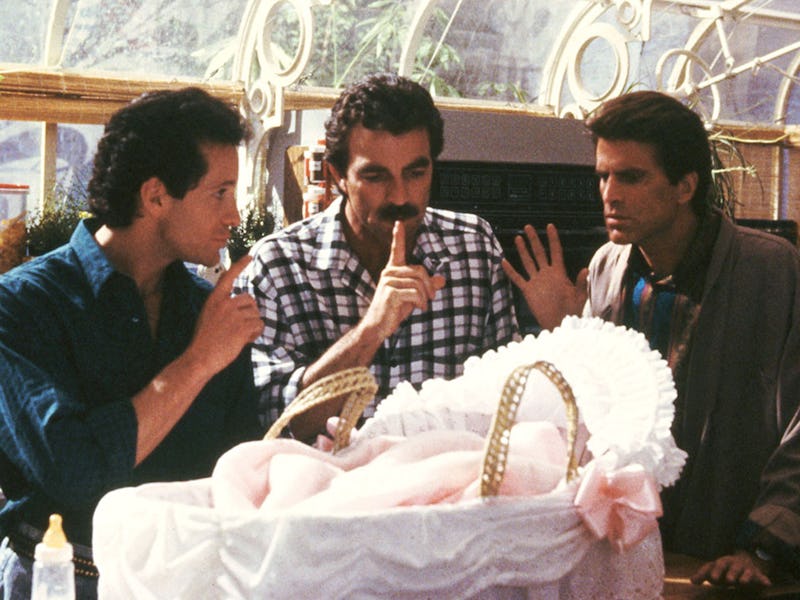What happens to your brain when you become a father
A growing body of research confirms changes in the brains of new dads.

In humans, as well as some other animals, there’s a direct link between early parental care and a child developing a healthy brain.
“Mom brain” is infamous. Across all mammals, pregnancy and childbirth catalyze significant changes in the mother’s brain, thanks to fluctuations in hormones like oxytocin. This encodes neural pathways that make the mother attached to and protective of her newborn.
But what about a parent who doesn’t have a bunch of pregnancy-related hormones surging through their body? What’s happening in the brains of new fathers?
Changes in the brains of new fathers have been studied much less than those of new mothers, though an increasing body of research is starting to give us more insight. A new study on male voles, for example, found their brain’s reward system lights up when they take care of their children.
The vole study is consistent with research looking at the brains of human fathers.
Understanding what’s happening in paternal brains can help further our understanding of relatively new areas of study, like paternal postpartum depression, as well the biological factors associated with paternal behaviors. This research also undermines the stereotype of the hapless dad, finding the effect of caregiving on the brain isn’t wildly different between parents.
What’s new — A study published in June in the Journal of Neuroscience is one of the latest studies to add to this body of research.
Researchers measured the brain activity of male voles while they were caring for their offspring. When the voles were actively engaging in parental nurturing, like licking and grooming, a key neural network was activated.
While male voles were caregiving, oxytocin neurons connecting the hypothalamus to the ventral tegmental area fired. This makes sense: The hypothalamus is one of the areas of the brain associated with emotional activity and the ventral tegmental area is central to the brain’s reward system. Just as happens in female mammals, the brain was associating nurturing with feeling good.
When the researchers artificially stimulated the voles’ oxytocin neurons, the voles’ paternal behaviors increased. When they artificially inhibited those same neurons, the caregiving behavior decreased.
When the researchers inhibited the pathway itself, there was decreased dopamine in the reward area of the brain when fathers were caring for their pups.
Does fatherhood change your brain?
A 2014 study published in the Proceedings of the National Academy of Sciences measured parental brain and behavior response to infant stimuli in three groups of parents:
- Heterosexual primary-caregiving mothers
- Heterosexual secondary-caregiving fathers
- Primary-caregiving homosexual fathers rearing infants without maternal involvement.
All participants were raising their first child.
Lech Walesa, the first directly elected Polish leader and a Nobel Peace Prize laureate, playing with his young daughter.
The researchers found that in all three groups two neural networks were activated, both associated with parental caregiving.
The first neural network involved emotional processing — a system associated with “vigilance, salience, reward, and motivation,” reports the study team. The second activated neural network was a “mentalizing network,” associated with social understanding and cognitive empathy.
Together, these networks allow the parents to be emotionally attuned to the needs of their child, as well and plan and manage parental caregiving.
While there was some difference between mothers and fathers — mothers showed greater activation in the emotional processing network, while fathers had greater activation in the socio-cognitive circuits — both networks were activated and working in tandem, regardless of the parent’s gender.
Among all the fathers, the time they spent directly involved in childcare corresponded to the degree of connectivity in these essential parenting networks.
Structural changes in the brains of new dads — A different 2014 study, this one published in the journal Social Neuroscience, compared the brains of new moms and dads and found the brains showed:
- Similar brain activity
- Similar structural changes
To get to these findings, researchers at the Universities of Denver and Yale scanned the brains of 16 new fathers. They first scanned the fathers’ brains between two and four weeks after their babies were born, and then again 12 to 16 weeks later.
The second scans showed increased grey matter volume in several areas of the fathers’ brains. The areas showing growth were involved in reward processing, emotional processing, memory, and hormonal control. Notably, these are also the areas that show increased grey matter volume in new mothers.
Why this matters — For the sake of fathers, we need to understand their brains better. Although postpartum depression is more commonly associated with new mothers, an estimated 8 to 10 percent of new fathers will experience symptoms of the disorder.
Tracking postpartum neural changes in mothers and fathers could help us better understand and treat postpartum depression and make sure it doesn’t go undiagnosed simply because of a new parent’s gender.
It’s also a compelling body of evidence refuting the outdated notion that women are biologically wired for caregiving in some way that’s impossible for fathers to experience. The more time fathers spent caring for their child, the more their brains resembled caregiving mothers, suggesting it’s the brain’s response to the child, not the parent’s sex, which matters.